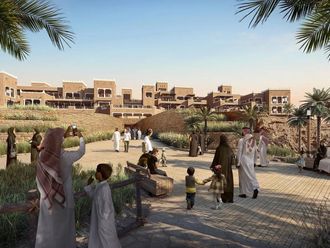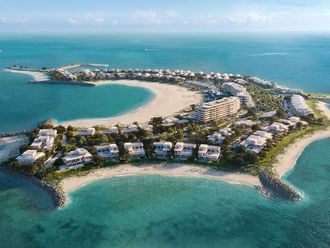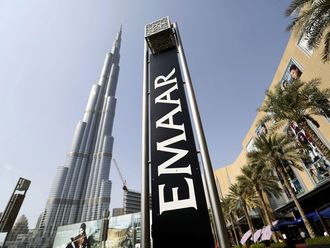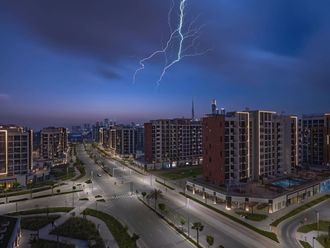When: Cityscape opens its doors Tuesday, it will likely be with a small if not apprehensive fanfare. One change that has been clear since the event's heyday in 2007 is that it no longer blows its trumpet too loud. Much has been made over the last two years of Cityscape's new role as a business-to-business event, but the fact that exhibitors have dwindled from their boom-time highs has not escaped anyone.
Nor has the state of the property market in Dubai which, analysts said Monday, was finally showing signs of bottoming out. While that may be true, with an estimated 10,000 units due to come online this year, the market will be mopping up its excess units for some years to come.
But actually, those considerations could seem largely irrelevant for Cityscape in 2011, a fact that has been repeatedly hammered home by the organisers since the event was re-branded Cityscape Global in 2010. The new focus, they argue, is on using Dubai as a convenient meeting point to connect investors with developers and other parties from China, the US and the rest of the Middle East.
It is a fact that has been reflected by the amount of Cityscape-related press releases that have been received here at Gulf News in the run-up to this year's event. While all the major local players are attending, many of the calls to the business desk have related to property bigwigs coming from the UK or, increasingly, China and Malaysia. In terms of projects, Qatar and Saudi Arabia are set to dominate this year's event, the former in the wake of its successful Fifa 2022 bid and the latter as the construction industry's darling.
In casting itself as a global event, Cityscape has done well to keep itself relevant at a time of a lot of international concern about its home market. Dubai's status as an events hub is undeniable, as a quick look at the events and promotions schedule for the next six months shows, while flights continue to increase into the emirate's airport from all four corners of the globe.
Critical issues
It is also an opportunity to get away from the traditional project focus of the exhibition and onto some of the equally critical peripheral issues. Last year's World Architecture Congress was a good example of this, bringing together top architects and designers from all over the world to discuss issues relating to sustainability and design as well as reducing the significant carbon footprint that accompanies so many new developments in the Middle East and China.
But while Cityscape is, by its new definition, global, exhibitors and visitors alike this week will also be expecting news from closer to home. As was raised by analysts last week, there are ongoing issues relating to stalled properties that still need urgently addressing in Dubai, not least more information about which of these projects have officially been cancelled by Dubai's Real Estate Regulatory Authority (Rera).
There is also the fate of hundreds of residents who own properties in stalled projects, who, in many cases, are still paying installments with little idea of whether they will ever be able to move into their new homes.
Cityscape would be the perfect time to present solutions to issues such as these, and show that while the event is looking outwards to make the most of Dubai's assets as a business hub, it has not forgotten about problems at home.
If it could achieve both these things, Cityscape could feel comfortable making all the noise it likes.












